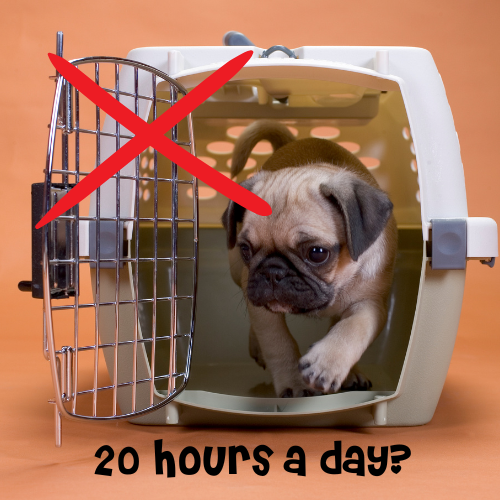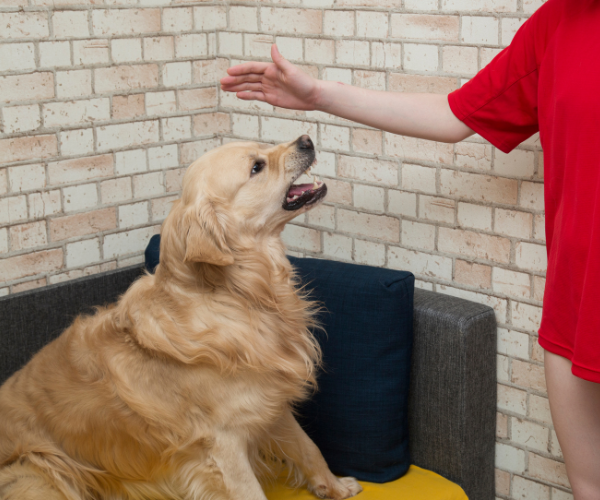Dog owners become accustomed to their canine companions’ odd cough, sneeze, howl, or growl. as pet owners, we worry about our pups when they might be sick. Consequently, it is only normal to observe your dog’s coughing. The question is, why do dogs cough after they bark?
It’s possible that your dog’s coughing is just its body’s normal reaction to the exertion of barking after applying so much energy. It’s also possible that it’s just attempting to clean its throat. However, you should examine the cough’s severity. It is necessary to seek treatment for the disease if the cough is too deep, makes a honking sound, or is accompanied by mucus production.
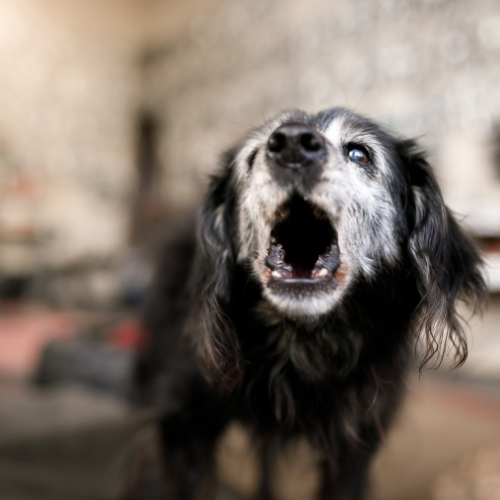
Keep reading to learn why it is normal for dogs to cough after they have been barking, what you should do if your dog is coughing, and when you should be worried.
Dog Growls When Tired (Why And What To Do)
Dogs Cough After Barking
In certain circumstances, such as when the pup barks excessively, the cough is a natural result, but coughing after frequent barking is not normal canine behavior. The cough itself is not the problem; duration and severity are. There are moderate to severe cases of dogs’ coughs after barking.
If the coughing does not stop, it is highly recommended that you see a veterinarian.
What Are Different Types of Cough?
A dog can cough in various ways, just like a person can. The dog’s voice can tell you if it needs a vet or if home treatments can assist. Here are the most common types of cough for dog coughs after barking.
- Hacking Cough: When your dog has a hacking cough, it will sound like it is trying to expel something from its throat. A hacking cough is a symptom that is sometimes caused by chronic bronchitis.
- Deep, Honking Cough: This cough will make your dog’s bark seem like it’s coming from a goose, as the name says. This may be an early sign of kennel cough.
- High-Pitch Gagging Cough: If the pup has foreign objects stuck in its airways, the cough will frequently sound like the dog is gagging or choking. The sound may be a sign of a sore throat.
- Wet Cough: In addition to the sound, you will also notice phlegm in the cough. A dog may produce a wet, moist cough with respiratory issues.
- Coughing While Sleeping: If you notice that your canine companion only coughs while they are asleep, this might be an indication that they have cardiac disease.
Common Conditions That Cause Dogs to Cough
Multiple conditions, varying in severity from mild to fatal, can cause canines to cough. A dog’s cough can be caused by a number of different conditions, including the following:
Kennel Cough
Your dog’s cough is likely due to kennel cough. The cough is often dry and hacking, and it nearly sounds like your pup has something trapped in its throat.
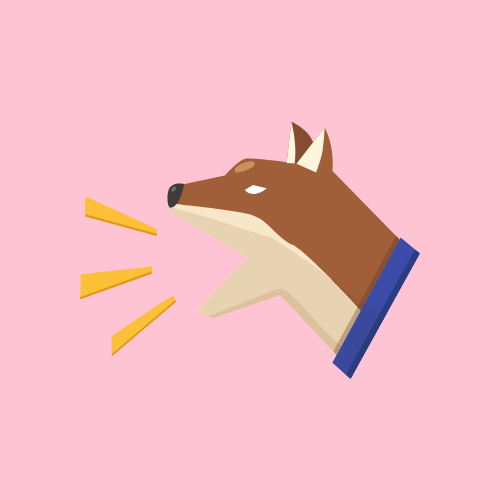
Kennel Cough is very infectious and spreads when dogs are together. If your dog’s main symptom is a chronic cough, it may have Kennel Cough.
In most instances, kennel cough clears up after two to three weeks. It is very simple to prevent; see your veterinarian about the standard immunization for kennel cough.
Heart Problems
Genetic heart disorders might cause coughing after a dog barks. When heart valves or chambers grow, they stress the airways, causing coughing. In addition, the dog coughs because the fluid that CVD causes flows backward in the blood vessels whenever the pup barks. Typically, a dog suffering from heart disease will have a dry cough.
Chronic Bronchitis
This disease is hard to diagnose. Initially, chronic bronchitis may be confused for kennel cough, but chronic bronchitis does not improve over time or the kennel cough treatments typically prescribed.
It is believed that immune-mediated or allergic reactions are the basis of chronic bronchitis. Steroids, such as prednisone, may be required to decrease the severe inflammation in the airways and, consequently, alleviate the coughing.
Asthma
Asthma in dogs is a disease that affects the tiny airways in the lungs, and one of the symptoms of this condition is coughing. Asthma attacks restrict mucus-fill airways, making breathing difficult. Asthma causes coughing, shallow, closed mouth breathing, and wheezing.
Corticosteroid and bronchodilator medicines are used to treat asthma in dogs. Nebulizer treatments administered with a mask may be beneficial to your pooch. Seek immediate medical attention for your dog if it is having significant trouble breathing or if the color of its nose has become blue.
Foreign Objects and Coughing
It’s possible for dogs to accidentally breathe in foreign items or dirt, which can then become stuck in their airways. Coughs that grow forceful or sound like choking, together with efforts to swallow and lip licking, might mean something is caught in your dog’s throat.
Environmental Allergens
Allergens are particles like dust, pollen, or cigarette smoke that your dog’s immune system overreacts to. If your pooch is allergic to dust or particular components of the food they eat, their immune system may respond as if it were being attacked by a virus or bacterium that is not native to their body. This causes coughing in dogs.
Sore Throat
It is not very frequent for a pup to suffer from a sore throat, but it is possible. Coughing may be a symptom of tonsillitis. This may be a subsequent response to a sinus or ear infection. It is also possible that this indicates that foreign materials are trapped in the airway of the canine companion.
The barking dog will produce a hacking sound when it coughs. Loss of appetite, discomfort Sand drooling are other possible symptoms.
How to Train Your Dog to Ignore Other Dogs? [Complete Guide]
Lung Problems
Your dog may have a lung condition if his cough sounds like a gargle and produces mucus. The dog may have fluid in its lungs, which would explain the gagging sound. In addition to this, it will have trouble breathing regularly.
The dog’s condition will initially be stabilized with the administration of oxygen treatment and antibiotics. The use of diuretics, anti-inflammatory drugs, and intravenous fluids may follow, depending on the underlying reason for the accumulation of fluid in the body.
What to Do When the Dog Coughs After Barking?
When your dog coughs after barking, examine its throat to ensure it hasn’t ingested something that might be causing the cough. You should try giving it something that will comfort its throat if the cough is moderate and only occurs sometimes. Moreover, if your dog begins coughing regularly, you must get to the veterinarian immediately.
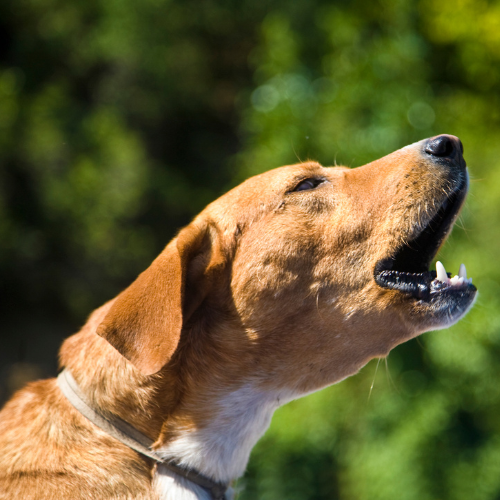
What Are Some Home Remedies for My Dog’s Cough?
- You must ensure that your dog has access to plenty of fresh water.
- They should be provided a place to relax and recover that is calm, comfortable, and free from disturbances.
- You might also use a humidifier in the room where your pup sleeps; the steam from the humidifier will provide moisture to the air that your dog breaths. This may calm down some of the inflammation in their respiratory system.
- When your dog is coughing, relax their collar or use a harness. A tight collar might irritate the throat and windpipe.

Doctor of Veterinary Medicine (D.V.M.) at Nation Taiwan University,Master of Science (M.S.) in Biomedical Engineering at National Taiwan University of Science and Technology


